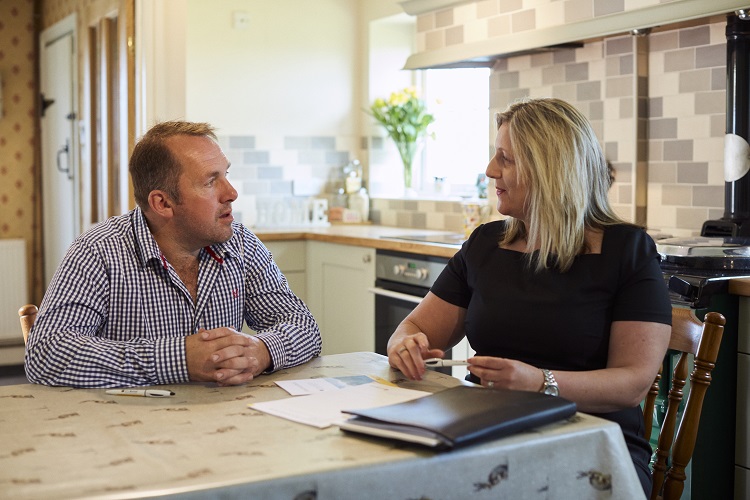What does the Spring Budget mean for you?

The Chancellor’s Budget statement focussed on the Government’s plans for economic growth. There were several important announcements that could affect your finances. Here’s a summary of the key points:
Announcements impacting your personal finances
National Insurance cut
The headline grabbing announcement is a further 2% reduction in National Insurance Contributions (NICs) for both employees and the self-employed from April 2024.
Employees currently pay 10% on earnings between £12,570 and £50,270 and 2% on any amount above this. From April the main rate will fall from 10% to 8% giving a saving of up to £754 per year.
Self-employed people pay 9% on profits between £12,570 and £50,270 and 2% on any amount above this. In the Autumn the Chancellor announced this would fall to 8% from April. He went a step further and reduced the main rate to 6%, giving a maximum total saving of £1,131 per year.
The change will put more money into the pockets of many. Those over state pension age (currently 66) don’t pay NICs so won’t benefit from the change, however they will see the state pension increase by 8.5% from April.
Employees can make further NIC (and income tax) savings and boost their retirement income by giving up part of their salary in return for their employer making a pension contribution of the same amount, an arrangement known as ‘salary sacrifice’.
Child Benefit Tax charge
There was a welcome change for many families, with an increase in the threshold from which the High-Income Child Benefit Tax charge becomes payable. Currently once the income of the highest earner in the household exceeds £50,000, every £100 of additional income results in the loss of 1% of the Child Benefit received, through tax. Once income reaches £60,000 all Child Benefit must be paid back.
From April 2024, the threshold will rise to £60,000. The rate of charge will be halved, so that Child Benefit won’t need to be repaid in full until income of the highest earner in household reaches £80,000. The Government plans to base the charge on household income rather than the income of the highest earner in the household by 2026.
If you have opted out of receiving Child Benefit and your income is below £80,000 it may make sense to opt back in. Paying money into your pension can also be a great way to keep more of your Child Benefit, as it's your income after pension contributions that is used to assess the tax.
Inheritance Tax
Although changes to Inheritance Tax, including a cut in the 40% rate, had been anticipated by some, there were no new announcements.
There was some good news for farmers and landowners with confirmation that Agricultural Property Relief will continue to apply to land taken out of agricultural production under Environmental Land Management Schemes from April 2025.
ISAs
ISA allowances remained unchanged at £20,000 for adult ISAs and £9,000 for a Junior ISA. From April 2024, you’ll be able to invest in multiple ISAs and transfer between them in the same tax year (currently you can only invest in one Stocks and Shares ISA or Cash ISA in the same tax year).
The Government plan to introduce a new UK ISA which will give an additional £5,000 ISA allowance that can be invested in UK companies. We are likely to see more detail when the consultation closes on the 6th June 2024.
Capital Gains Tax on sale of residential property
When selling or giving away a residential property other than your main home, any rise in the value during your ownership will be assessed for Capital Gains Tax (CGT). The higher rate of CGT for residential property disposals is being cut from 28% to 24%. The lower rate will remain at 18% for any gains that fall within your basic rate band.
Announcements impacting businesses
VAT
The threshold for registering for VAT is set to increase from £85,000 to £90,000 from 1st April 2024.
Furnished Holiday Lets (FHLs)
The Chancellor announced his intention to sweep away the many tax advantages enjoyed by those who run furnished holiday lets, to encourage property owners to let on longer term tenancies.
Currently, owners of FHLs can offset mortgage interest in full against the income from the FHL. There are also several Capital Gains Tax reliefs available that give more options when selling or gifting an FHL. The profit from FHLs counts as pensionable income, so it makes sense to take advice on maximising this benefit before the new rules come in from 6th April 2025.
How did the markets react to the Budget?
Financial markets remained calm during and after the Chancellor’s Budget statement. Government debt issuance was announced marginally above expectations for the year ahead, but government bond yields and sterling were broadly unchanged. The extra UK-focussed ISA allowance, and talk of changes to encourage greater home investment from pension funds, provided a small boost to some domestic shares. The measures fell short of the hopes of some industry insiders but should be seen as a move in the right direction for companies listed on the UK exchange.
The value of investments can fall and you may get back less than invested.
The tax treatment of pensions and ISAs depend on individual circumstances and may change in the future.
The tax treatment of pensions and ISAs depend on individual circumstances and may change in the future.

Looking for financial advice?
If you’re not sure how to put your financial plan in place an NFU Mutual Financial Adviser can help. An NFU Mutual Financial Adviser will recommend products that are right for you based upon your personal circumstances. You can book an appointment with an NFU Mutual Financial Adviser by either calling: 0800 622 323 or requesting a call back.